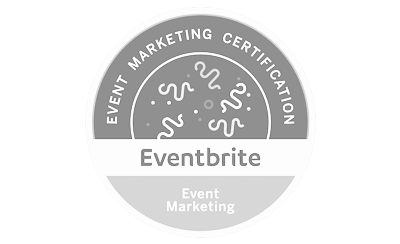
Over 15 years ago I sat at a table full of lawyers my age and listened while one of them mocked me for focusing on and learning about social media, telling me that social media was a fad, everything I was doing was a waste of time, and more. I knew she was wrong, but I also know when someone is punch-drunk on their own ignorance they aren’t going to listen to another person – even one who knows more than they do on the subject.
Fast forward to today. Social media is everywhere. If you have teenagers living in or visiting your home, for example, you cannot escape TikTok. New channels pop up seemingly daily and determining which ones to use and how to use the ones you select in the most effective way is not just an optional marketing tactic for law firms anymore; social media has become a necessity, with the largest law firms in the world using it on a daily basis. That loud, obnoxious lawyer even wound up taking on lawsuits against social media companies and got press for it, which I found ironic.
Social Media Marketing and Search Engine Optimization are Related Marketing Tactics
Social media marketing is just one of many digital marketing tactics law firms can use to their benefit, but it remains very misunderstood in the legal industry. I want to rewire your thinking, so you stop thinking of social media and law firm search engine optimization (SEO) as unrelated tactics. While each is effective on its own, when used together in a coordinated manner dictated by a comprehensive digital marketing strategy created and executed by a professional marketer, SEO and social media are significantly more capable of yielding digital success.
Google’s Search Quality Rating Guidelines list social media posts and social media profiles as factors that search evaluators use to assess the reputation of both content creators and websites. Social signals are often a sign of high-quality content. This means that your social posts – when written and executed properly – can bolster Google’s perception of an attorney and / or of your law firm’s experience, expertise, authority, and trust (E-E-A-T) – the criteria Google uses to evaluate the credibility and relevance of webpages and websites. This means that, while social signals are not a ranking factor that can improve your page’s position in the search engine results pages (SERPs), Google does use social media (and social signals) to improve the quality of its search results. In laymen’s terms, social media work – when done correctly – can help your law firm show Google that its content is valuable to searchers, thus encouraging the search engine to show your content more often and in a higher search position.
SEO and Social Media are Different Marketing Tactics
SEO is an intricate process of improving and updating a website in order to boost its rankings in search engines. Social media marketing involves creating posts with copy and images on various platforms like Twitter (X), LinkedIn, Facebook, etc. While social signals are not a Google ranking factor, they can increase your brand’s visibility in search results, generate traffic to your website, and build brand awareness.
While social and SEO are distinct, some aspects can be handled similarly. You can engage in two distinct types of social media-related SEO – SEO for social media search within the applications themselves and SEO for Google search to increase the visibility of your social media content in organic search results. In-platform SEO increases impressions, engagement, followers, and traffic driven by the links shared on your account – and, the more traffic being driven to your website, the higher the chances Google will see that content as “quality.”
Social Media Channels are Search Engines Themselves
SEO includes the searching that happens on social media search engines.
For example, YouTube is the second largest search engine in the world, second only to Google. To give you some understanding of the magnitude of its impact, YouTube receives more searches per month than Bing, Yahoo, AOL, and Ask.com combined. Even though Google bought YouTube in 2006, YouTube remains a separate site with a separate search algorithm. Every second of every day, 1,140 searches are performed on YouTube. Furthermore, Facebook has its own highly-developed search engine. Facebook search’s purpose is very different from Google search’s purpose because Facebook is indexing the content and settings of personal and business identities. Twitter is a search engine too. In fact, industry reports reveal Twitter’s search engine has been managing over 2.1 billion queries daily for at least a decade.
Social Media Content is Indexed by Google
The content shared on your social media accounts is indexed by search engines, so make sure you are using applicable keywords and phrases in your social posts (while of course not overdoing it with keyword stuffing). Your social pages matter to Google. The search giant crawls and returns personal Facebook Profiles, Business Pages, Twitter (X) accounts, and LinkedIn Company Pages and Individual Profiles. On the majority of social media platforms, the stronger the social presence, the higher the corresponding organic search engine rankings. Google also shows niche SERP features like carousel results that highlight social media site posts and / or videos from sites like YouTube – again indicating Google’s investment in social media platforms as quality content.
Social signals are a range of metrics on social media platforms used to quantify the level of engagement with and popularity of a post. Social signals include Facebook likes, Twitter retweets, pins on Pinterest, aggregate shares across social platforms, and more. Google will rank your blog post and website higher if it sees you are a credible source, which it can gauge partially based on how users interact with that content when shared on social platforms.
Optimize Your Social Profiles
Search engine optimization techniques help your content rank higher on Google, Bing, and Yahoo. But they can also help your social media profiles appear higher in each app’s search results. You need to optimize all parts of your profile and anything you post, from your Instagram bio to minor details in your content.
Select a few high-volume, important keywords and add them to the about sections of your social media accounts. Just as you can and should optimize your law firm website with keywords, you can incorporate those same keywords into your social media profiles to align with your website’s search engine optimization strategy and your overall digital marketing strategy. Make sure to use the most important keyword phrases for your law firm’s practice areas in the prime spots relevant to your audience in:
- Your handle
- User profile name
- User bio / info
- Your captions / content
Like regular SEO, search text—the text a user types into the search bar—is the most important ranking factor on social channels. The search function is the primary way to navigate content on these applications. When people use it, the search query they type shows specific intent. The platform will also recommend phrases to get users started. On Instagram, for example, hashtags used to be the primary way users found content of interest to them; however, now keyword-rich captions get 30% more reach and twice as many likes as hashtags. And, in addition to making your social media content accessible to the widest possible audience, writing keyword-rich alt text (alternative text) can also help improve the performance of your posts. Alt text is used to describe your images and videos for people who use a screen reader to access Instagram. Including detailed descriptions helps with accessibility, and the relevant keywords contained within those descriptions can help your SEO efforts.
Organic Social Media and Paid Social Media: Use Both
An effective social media strategy cannot involve an “either/or” mindset when it comes to utilizing organic and paid methodology. Organic social media is a channel strategy where businesses create and share original content on social media platforms without paying for reach. Paid social media is a tactic that involves promoting content through advertising dollars. Unlike organic social media, which only reaches existing followers, paid social media allows content to be targeted to specific audiences. While organic efforts prioritize brand authenticity, engagement, and nurturing connections, paid social media can provide targeted and expanded reach, and quick short-term results that are scalable over time.
Diversify: Don’t Put All of Your Marketing Eggs in One Basket
The best digital marketing strategies are those that focus on several channels. Having a solid social media presence alongside a strong SEO strategy lends to your credibility and trustworthiness. That can mean improved authority in the eyes of Google as well, and ultimately, improved rankings. But don’t stop there. Social media and SEO are just two tactics that can help a law firm be successful online. Working with an experienced legal marketing team can help your law firm use its budget wisely and ensure accurate tracking of return on investment.














Leave a Comment